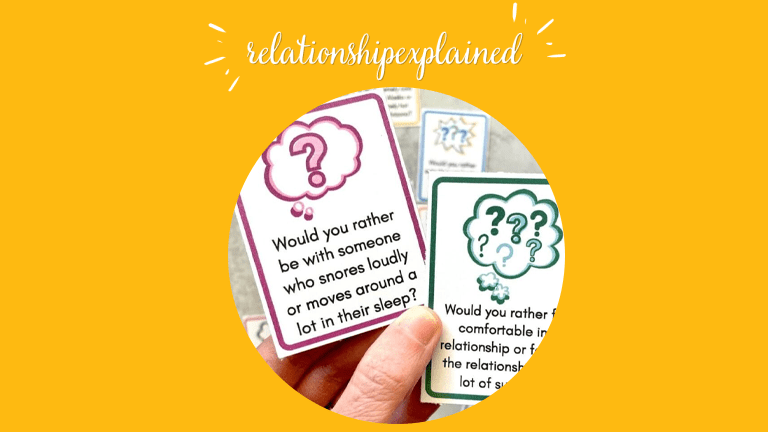Why Does My Husband Get Texts From Dating Sites?
Has your husband been receiving text messages from dating sites? Find out all the reasons behind such text messages and what to do about it.
Discovering that your husband is receiving text messages from dating sites can be a confusing and concerning situation.
Communication in today's digital age has become more complex, and sometimes, unexpected messages can land in our inboxes for various reasons. While it's essential to approach this situation with understanding and open communication, it's equally important to investigate the possible causes behind these texts.
In the following guide, we will delve into some of the common reasons for receiving texts from dating sites. You will also find out how to address your concerns and the steps to take to maintain a healthy relationship while resolving this issue.
5 Reasons Why Your Husband Might Be Getting Texts From Dating Sites
It can be distressing to find out that your husband has been receiving text messages from dating sites. That said, it's essential to approach the situation with an open mind and a willingness to understand the underlying reasons.
Instead of jumping to conclusions, consider these five common explanations for why your husband might be getting texts from dating sites.
1. Innocent Website Sign-Up
One of the most straightforward and benign explanations for your husband receiving texts from dating sites is an innocent sign-up or subscription that he may have forgotten about. In today's digital age, it's not uncommon for websites and apps to request users' phone numbers for verification purposes, notifications, or account recovery. Your husband may have signed up for such a service out of curiosity, experimentation, or even by accident, only to forget about it later.
What To Do
Before making any assumptions or accusations, initiate a calm and non-confrontational conversation with your husband. Approach the topic with an open mind and ask him if he recalls signing up for any dating websites or providing his phone number for related services.
Keep in mind that genuine forgetfulness can lead to such situations. If he confirms that he did, in fact, sign up for a dating site but didn't actively use it, he can take steps to unsubscribe or delete his account to stop receiving these texts.
2. Spam Messages
The internet is rife with spam, and dating sites are no exception to this digital nuisance. Sometimes, individuals and automated systems send out unsolicited messages to random phone numbers, hoping to attract new users, generate traffic to their websites, or even attempt fraudulent activities.
Your husband may have become an unwitting target of such spam messages.
What To Do
Encourage your husband to mark these unsolicited messages as spam on his phone to help filter out future unwanted texts, reducing their impact. However, if the messages persist or if they escalate to a more serious issue like phishing attempts or scams, consider changing his phone number. Alternatively, try contacting his service provider to block the senders.
3. Data Breaches
In today's interconnected world, data breaches have become a regrettable reality, affecting various digital platforms, including dating websites and apps.
These breaches expose user information to potential threats and misuse, making them a common concern in the digital landscape. Even if your husband didn't engage actively with dating sites, his phone number might still be at risk of compromise through a data breach.
These breaches can occur due to vulnerabilities in the security infrastructure of dating platforms, leaving user data exposed to malicious actors. Phone numbers, email addresses, and other personal information can be harvested and used for various purposes, including sending unsolicited messages.
It's essential to recognize that such breaches are beyond an individual's control, and anyone can fall victim to them.
What To Do
To address this scenario, first, check if your husband's email or other online accounts have been compromised as well. Ensure that he changes his passwords across all accounts and enables two-factor authentication where possible.
It's also essential for him to exercise caution when sharing personal information online to prevent further issues. Staying vigilant about online security can minimize the risk of future data breaches affecting his personal information.
4. Advertisement And Marketing Tactics
Many dating sites and related services employ aggressive advertising and marketing strategies to attract new users. These tactics may include sending promotional messages, notifications, or enticing offers to encourage people to sign up or engage with their platforms.
Your husband's phone number could have been targeted as part of these marketing efforts.
What To Do
Review your husband's privacy settings on his phone and within his email accounts. Consider installing ad-blockers or enabling settings that restrict the types of notifications and messages he receives. These measures can help reduce the frequency of such texts and create a more pleasant digital experience.
5. Third-Party Involvement
While less common, another possibility to consider is third-party involvement, where well-meaning friends or family members might prank or play jokes on someone by signing them up for dating sites without their knowledge. In such cases, your husband may genuinely have no idea why he's receiving these texts.
What To Do
If you suspect that someone close to your husband might be behind this, it's crucial to have a candid and empathetic conversation with him.
Encourage him to clarify the situation with the person involved and request that they unsubscribe him from any dating site or service they signed him up for. Open communication can help unravel the mystery and ensure that your husband is not unfairly blamed for something he didn't do.
Final Words
Finding out that your husband is receiving texts from dating sites doesn't automatically imply infidelity or dishonesty. There are various innocent explanations, including forgotten subscriptions, spam messages, data breaches, marketing tactics, and even pranks by others.
The key to resolving this situation is approaching it with understanding and open communication. While it's natural to feel concerned or anxious, try to keep your emotions in check and have a constructive conversation with your husband.
By working together, you can identify the root cause of these texts and take appropriate steps to stop them. Remember that trust and communication are the cornerstones of a healthy relationship, and addressing this issue together can ultimately strengthen your bond.













